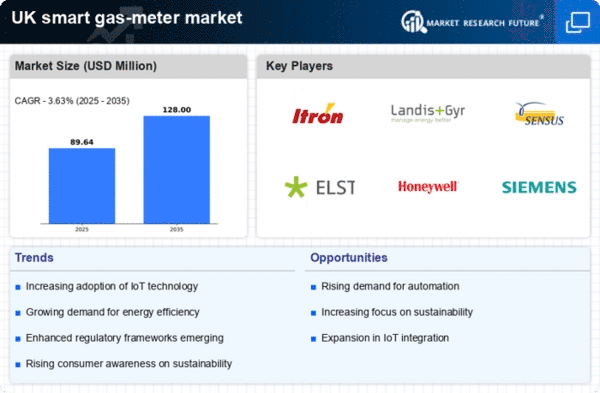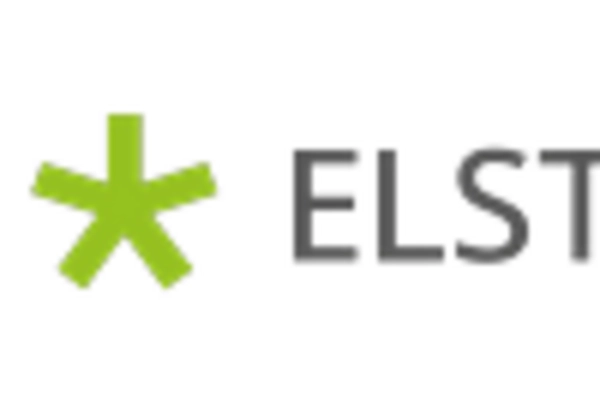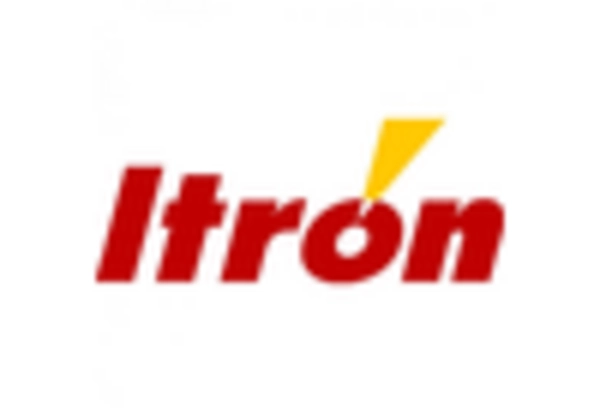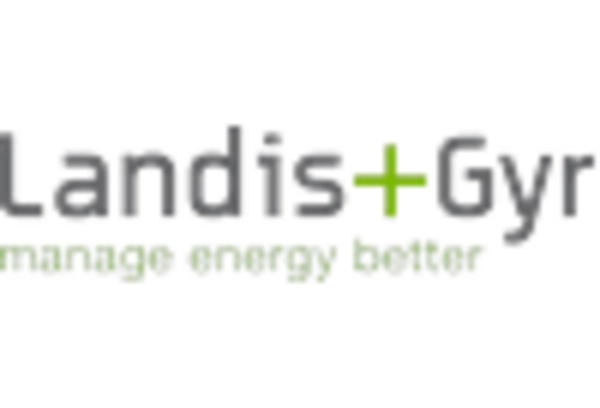Increased Energy Efficiency
The drive towards enhanced energy efficiency is a pivotal factor influencing the smart gas-meter market. With rising energy costs and environmental concerns, the UK government has set ambitious targets to reduce carbon emissions by 68% by 2030. Smart gas meters facilitate real-time monitoring of gas consumption, enabling consumers to optimize their usage. This technology not only aids in reducing waste but also contributes to significant cost savings for households and businesses alike. The smart gas-meter market is likely to see a surge in demand as more consumers become aware of the financial and environmental benefits associated with energy-efficient practices. Furthermore, the integration of smart meters with home energy management systems could potentially lead to a more sustainable energy landscape in the UK.
Government Incentives and Funding
Government incentives play a crucial role in propelling the smart gas-meter market. The UK government has introduced various funding schemes aimed at promoting the adoption of smart technologies. For instance, the Energy Company Obligation (ECO) scheme encourages energy suppliers to support the installation of smart meters in low-income households. Such initiatives not only enhance accessibility but also stimulate market growth. The smart gas-meter market is expected to benefit from these financial incentives, as they lower the barriers to entry for consumers. Additionally, the government’s commitment to achieving net-zero emissions by 2050 further underscores the importance of smart gas meters in facilitating energy transition. As funding continues to flow into this sector, the market is likely to expand, fostering innovation and competition among manufacturers.
Focus on Data Analytics and Insights
The emphasis on data analytics is reshaping the smart gas-meter market. With the advent of big data, utility companies are increasingly leveraging analytics to gain insights into consumption patterns and optimize service delivery. Smart gas meters generate vast amounts of data, which can be analyzed to improve operational efficiency and customer engagement. The smart gas-meter market stands to benefit from this trend, as utilities can offer tailored services based on consumer behavior. Moreover, the ability to predict demand and manage resources effectively can lead to cost reductions and enhanced customer satisfaction. As data analytics technologies continue to evolve, the integration of advanced analytics into smart gas meters may become a standard feature, driving further adoption in the UK.
Rising Demand for Smart Home Solutions
The increasing consumer preference for smart home solutions is significantly impacting the smart gas-meter market. As households in the UK increasingly adopt smart technologies, the integration of gas meters into broader home automation systems becomes more prevalent. This trend is driven by the desire for convenience, security, and energy management. The smart gas-meter market is poised to capitalize on this shift, as consumers seek devices that can be controlled remotely and provide insights into energy usage. According to recent surveys, approximately 30% of UK households have expressed interest in smart home technologies, indicating a substantial market opportunity. As manufacturers innovate to create more user-friendly and interconnected devices, the demand for smart gas meters is likely to rise, further embedding them into the fabric of modern living.
Environmental Sustainability Initiatives
Environmental sustainability initiatives are becoming increasingly relevant to the smart gas-meter market. The UK has committed to ambitious climate goals, including a target to achieve net-zero emissions by 2050. Smart gas meters play a vital role in this transition by enabling better monitoring and management of gas consumption. By providing consumers with real-time data, these devices encourage more responsible usage and promote energy conservation. The smart gas-meter market is likely to see growth as businesses and households align their practices with sustainability objectives. Furthermore, the integration of renewable energy sources into the gas supply chain may further enhance the appeal of smart meters, as they facilitate the efficient use of cleaner energy. As awareness of environmental issues continues to rise, the demand for smart gas meters is expected to increase.
















